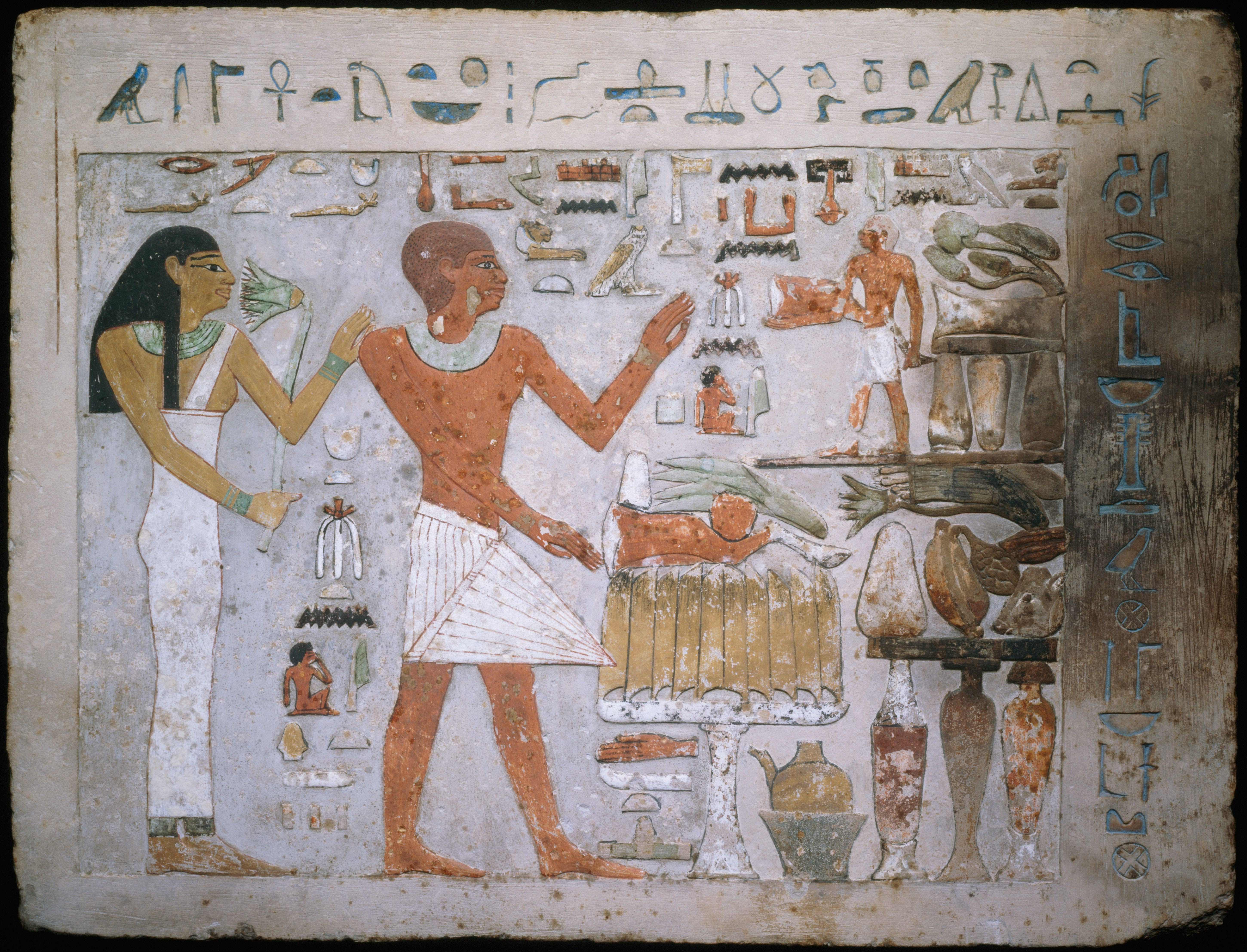This debate is always fun, but tends to go around in circles, because the premise is kind of open to interpretation, and a fantastically broad statement anyway.
"Ancient Egypt" generally refers to a nearly
three thousand year period of history in a country situated at the cusp of two continents. The idea that there is an archetypical "Ancient Egyptian" makes no sense given the scale of the timespan and the geographical setting.
The Nile is an extremely fertile and desirable set of land that happens to sit along a navigable river at the boundary of Asia and Africa, and not too far from southeastern Europe. Before the invasion of Alexander and the beginning of the Ptolemaic dynasty that is usually considered the end of the "Ancient" era, Egypt was a Persian satrapy. Prior to that it has been ruled and inhabited by the Assyrians and Babylonians from Mesopotamia, the Kuhorsehockye Nubians from what is now Sudan, the Libyans from the modern Maghreb, and Hyksos and Canaanites from the Levant. With all these regional peoples either invading or trading or migrating to Egypt, the idea of some "pure" Egyptian becomes a little meaningless, just as trying to define what a pure "English" person is supposed to be after nearly 2000 years of Roman/Anglo-Saxon/Norse/Norman invasion and subsequent migration before, during and after the empire.
Similarly "black" is a term with multiple interpretations built on the last few hundred years of racism and imperialism. I think people talk in cross purposes when talking about "!00% black" people. There is no one
black skin tone - the continent of Africa, as the origin of humanity itself, is fantastically diverse in shades of black and brown, even before any mixing of Arab or White features enters the picture.
Were the people of "Ancient Egypt" black in the sense that if they found themselves transported to the Jim-Crow-era in the USA that they would find themselves discriminated against? Almost certainly. While colour in their art is possibly more symbolic than realistic, looking at their paintings generally gives a pretty clear sense of a reddish but quite dark brown. A lot of people would probably describe that as being "black".
Were they "black" in the sense of having very dark skin? The art that contrasts them with darker-skin Nubians suggests probably not.
So, should they introduce a pre-Ptolemaic leader to Egypt in Civ VI?
Wholeheartedly yes! And for my money they should certainly be depicted as one of the various shades of fairly dark reddish brown that the Egyptians usually did. Can we know for certain if it's accurate? No. Just like we don't know how long Pericles' beard was or what Gilgamesh looked like.
One thing is pretty clear: they certainly shouldn't look like white Europeans

. This isn't
Gods of Egypt 
Now here's a bunch of fun Wikipedia examples of Egyptian art. I'm sure there is a debate to be had over how accurate the colours are, but it all gives a sense to me of a pretty dark brown (a lot of sun exposure in Egypt

) that would probably fall under the modern politicised umbrella term of "black" for most people.
I particularly like the last one, from, the Book of Gates. I know it's a modern reconstruction, and have no idea how faithful the colours are to the original, but it gives the impression of a cosmopolitan civilisation that had links with a lot of different people from the wider region.



 . This isn't Gods of Egypt
. This isn't Gods of Egypt 



